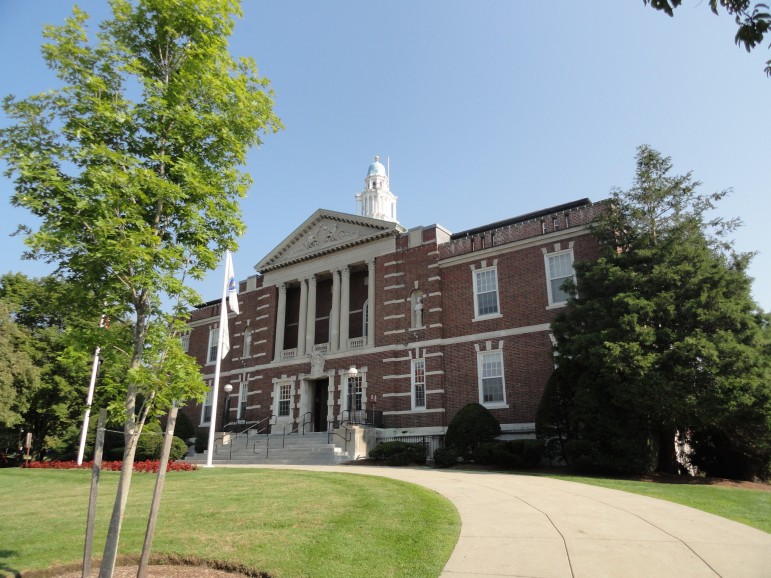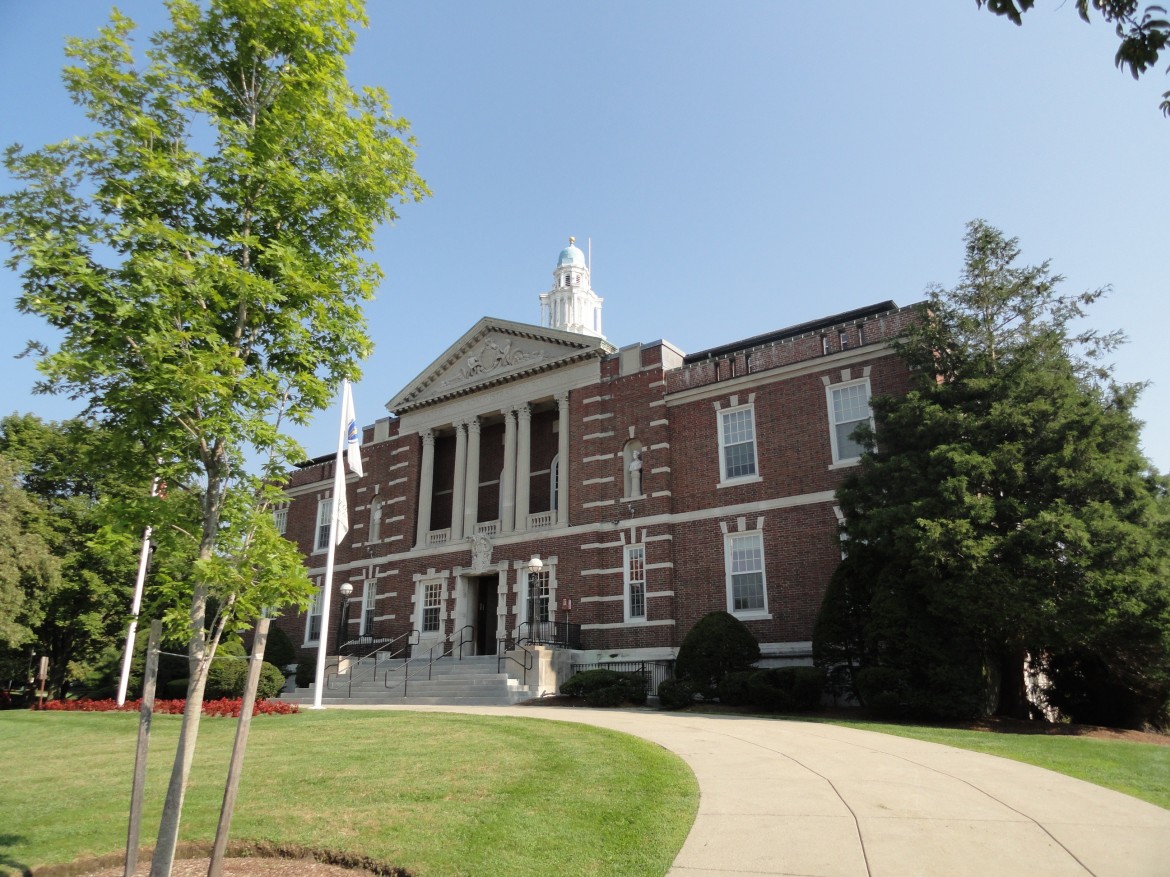
Watertown Town Hall
The average Watertown residential tax bill will be going up between $160 and $285 next year, depending on the type of property.
Tuesday night, the Town Council approved the tax rates for Fiscal Year 2019, which includes as 23 percent residential exemption for qualifying properties. They also approved a 175 percent shift from residential to CIP (commercial, industrial and personal) properties. The exemption and shift were approved at the same rate as last year.
The average tax bill for homeowners who live in their homes will rise: $160 for single-family homes, $285 for condominiums and two-family homes, and $367 for three-family homes.
The rate will be $12.92 per $1,000 of assessed value of properties. Homeowners who receive the residential exemption will receive an $1,913 tax credit. This would reduce the tax on the average assessed residential property to $6,404, according to information from Town Assessor Earl Smith. The same property for a homeowner who does not get the residential exemption would pay $8,316.

Watertown Assessor's Office
The Town Council adopted the 23 percent residential exemption with a 175 percent shift to CIP (commercial, industrial and personal).
To get the residential exemption, the home must be the owner’s primary residence as of Jan. 1, 2018, and the owner must apply and be approved by the Watertown Board of Assessors. Smith said currently 6,054 properties get the residential exemption.
Some people, however, are finding that they are dropping off the list of residential exemptions.
“It is difficult. I am getting a lot of elderly people, going into financial planners who say put (the home) in an irrevocable trust and all of the sudden they get a tax bill up $2,000,” Smith said.
First-time homeowners do not qualify for the exemption immediately, Smith said. They qualify the first year that they occupy the home on Jan. 1 of the year.
Also, the exemption does not mean lower taxes for all homeowners, even if they live in their home.
“Around $1.045 million (of assessed value) you start to pay more than if there were no residential exemption,” Smith said.
Decision on Residential Exemptions
Town Councilors had to decide how much residential exemption they should approve. While they approved 23 percent, they also considered 24 percent and 25 percent exemptions.
East End Councilor Angeline Kounelis said she would like to approve a higher exemption, up to 25 percent. She looked at the comparative increase from Fiscal Year 2018 for the average two-family home: $285 for 23 percent, $251 for 24 percent and $222 for 25 percent.
“I have long advocated for 25 percent residential exemption,” Kounelis said. “During these periods of growth we’ve experience in Watertown, residents say, ‘when am I going to see some tax relief with all development in Watertown?’ I know the Council last time increased it to 23. I would really like to see 25 percent. I will not support 23.”
Smith said the Board of Assessors recommended going with a 23 percent exemption.
“The thinking is values are up, the tax rate is down, the total dollar exemption would be up,” Smith said. “(A 23 percent exemption) has the most parity between qualifying homeowners and non-qualifying homeowners.”
On a single family home, the bill increases 2.73 percent for those with the exemption with a 23 percent exemption, and 3.29 percent for non-qualifying properties. With 25 percent exemption, the increase is 1.37 percent for those with exemptions and 4.81 percent for non-qualifying properties.
Councilor Lisa Feltner said she too has heard from residents wondering how the development will help reduce their tax bills. Councilor Anthony Donato said he has heard similar things, and said he would support going to 24 percent residential exemption but he is not sure about going to 25 percent.
Councilor Ken Woodland said he supported increasing the exemption over the past two years, but this year is different.
“My reason for increasing 22 to 23 percent (last year) and prior to that from 20 to 22 percent, is looking at average tax bills which were about to be hiked by CPA tax,” Woodland said. “If we increased residential exemption we reduce the bill by the amount it would go up because of the CPA.
“I do like idea of increasing it. I’d like to see tied to a long term strategy. I don’t see it here tonight. Maybe we should have aa discussion before we decide next year.”
The Council voted 8-1 to approve the Fiscal Year 2019 tax rates, with Kounelis voting against it.
Other Exemptions
The Council also approved funding local exemptions that reduce property taxes for people who qualify. These include surviving spouse or senior over 70, disabled veterans, blind residents, qualified seniors over age 65, and hardship. The projected cost to the town is $187,050, said Town Manager Michael Driscoll, which will be paid for from the Property Tax Overlay account.
In addition, the Council approved changes to the rules to qualify for tax deferral program. Last year only three people took advantage of it, Driscoll said. The interest rate was 8 percent, with income not exceeding $40,000. The Council voted to approve changing the interest to 4 percent and to have the income level match the the maximum allowable by the state for the Senior Circuit Breaker, which will be $58,000 in Fiscal Year 2020, the year it takes effect.
Find out more about the exemptions at the Assessors office in Town Hall, 149 Main St., Watertown, or call 617-972-6410.
See the Assessor’s materials presented at the Town Council meeting by clicking here.
